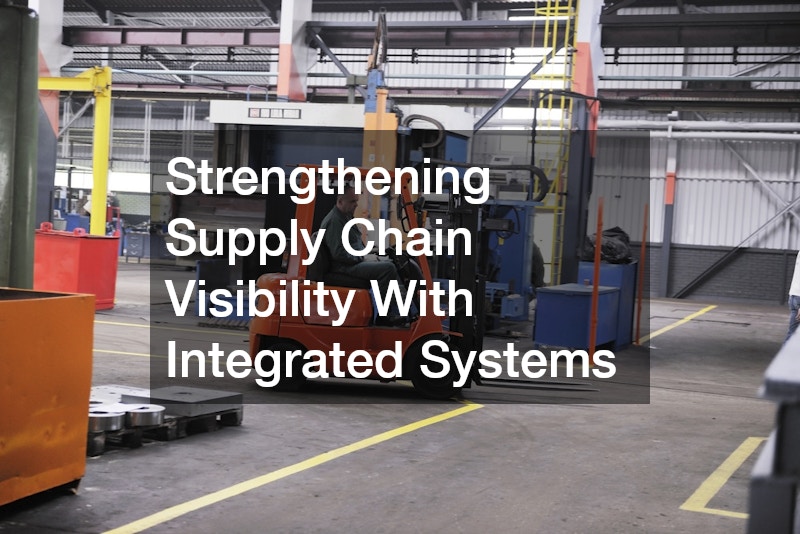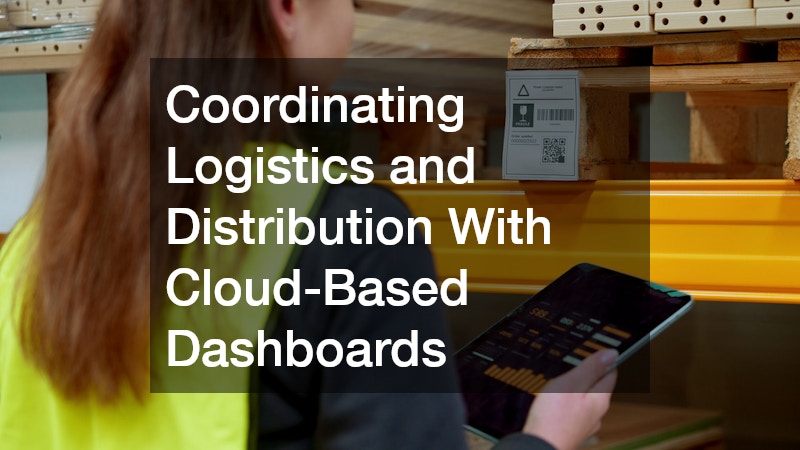Small-scale manufacturing businesses increasingly turn to digital tools to stay competitive in a fast-evolving industry. The ability to operate efficiently, respond to customer demand, and make informed decisions hinges on having access to real-time data and scalable technology. One of the most powerful shifts happening in this space is the integration of cloud technology, which allows even the most minor operations to leverage capabilities that were once only available to large corporations.
Cloud-based systems can unify production, inventory, maintenance, and workforce data under one platform, improving transparency and collaboration across departments. While the shift to the cloud can feel daunting, especially for manufacturers with limited IT resources, thoughtful implementation can yield dramatic improvements in performance, efficiency, and long-term growth. With the proper guidance and strategic approach, businesses can seamlessly adopt customized cloud solutions that align with their specific production needs, budget, and scale.
Understanding the Benefits of Cloud Integration in Manufacturing

Integrating cloud-based systems into manufacturing at a high level allows for more streamlined operations, centralized data management, and improved decision-making. Instead of relying on disconnected legacy systems or manual processes, businesses can access cloud platforms that unify data from various departments such as production, inventory, sales, and logistics. This enables better communication, faster response times, and real-time performance tracking. Cloud solutions can also scale up or down depending on a company’s needs, providing flexibility for seasonal demand or business growth without massive infrastructure investments. For small-scale manufacturers, this level of adaptability is crucial in remaining agile and competitive in a crowded market.
Take, for example, a company offering a robotic welding service. By integrating customized cloud solutions, the company can remotely monitor welding equipment, track maintenance schedules, and receive real-time alerts if a fault occurs. This not only minimizes downtime but also ensures consistent output quality. In addition, data collected from the welding process can be analyzed to improve efficiency, reduce material waste, and optimize energy usage. Over time, these insights can significantly enhance operational performance while keeping overhead costs manageable.
Assessing Your Facility’s Digital Readiness for Cloud Solutions
Before implementing any digital tools, small-scale manufacturers must assess their current operations and determine their readiness for cloud adoption. This evaluation includes reviewing existing infrastructure, workforce skill levels, and the compatibility of current processes with cloud-based systems. A common pitfall is rushing into cloud integration without understanding foundational gaps, such as outdated hardware or insufficient network capabilities. To ensure a successful transition, businesses should begin with a digital audit that identifies which systems can be migrated to the cloud and which may need upgrades or replacements. This preparatory phase helps set realistic goals and prevents costly interruptions during deployment.
For instance, a facility reliant on legacy manufacturing equipment might face challenges in connecting older machinery to the cloud. However, with the right sensors, adapters, and customized cloud solutions, these machines can be retrofitted to transmit operational data. This allows manufacturers to monitor performance metrics like run time, energy consumption, and output quality without replacing the entire system. Identifying such opportunities during the readiness assessment can extend the life of existing equipment and maximize return on investment. More importantly, it ensures that cloud solutions are integrated in a way that supports, not disrupts, core operations.
Choosing Scalable Platforms for Small Manufacturing Operations
Selecting the right cloud platform is one of the most essential steps in adopting digital solutions for small-scale manufacturing. Scalable platforms offer the flexibility to grow with your business, making it possible to start with basic features and gradually expand to more sophisticated functionalities as needed. For example, a company might begin by digitizing inventory management and later incorporate predictive maintenance, workforce scheduling, or automated reporting. These platforms often offer modular capabilities, which help avoid overinvestment in features that aren’t immediately necessary. When evaluating providers, manufacturers should look for ease of integration, data security, mobile accessibility, and customer support—all critical elements that ensure long-term usability.
A manufacturer specializing in farm equipment might initially focus on improving spare parts inventory tracking and field service coordination through the cloud. The same platform can scale as operations grow to include supply chain analytics, machine performance monitoring, and customer feedback integration. Customized cloud solutions enable this manufacturer to tailor workflows, dashboards, and user roles for agricultural production needs. By adapting the system to the company’s size and goals, the manufacturer can benefit from cloud efficiencies without the burden of unnecessary tools or costly upgrades. This incremental approach allows for continuous improvement while minimizing risk.
Streamlining Production Through Real-Time Data Access

Real-time data access is a major advantage of cloud computing in manufacturing. When production lines are connected through cloud-based systems, managers can instantly view key performance indicators, track output, and respond to issues as they arise. This instant access allows for more agile decision-making and reduces the lag that often results from manual reporting or data silos. With real-time data, manufacturers can better coordinate across departments, identify bottlenecks, and quickly adapt to customer demands.
In the case of a small business working with ornamental metals, production may involve custom designs, short-run batches, and high attention to detail. Using customized cloud solutions, the company can monitor job status in real time, allocate resources more effectively, and provide customers with accurate timelines. For example, if a delay occurs in the finishing department, alerts can be triggered instantly so production managers can reassign tasks or adjust schedules. This not only improves efficiency but also strengthens customer satisfaction by maintaining transparency. Access to real-time data helps preserve quality and responsiveness in industries where craftsmanship and customization are key.
Enhancing Equipment Monitoring With Cloud-Based Tools
Cloud-based tools play a critical role in equipment monitoring, especially in small-scale operations where every asset must perform reliably to meet production goals. Manufacturers can monitor machine conditions such as temperature, vibration, and usage patterns through sensors, IoT devices, and cloud platforms. This data allows for predictive maintenance—addressing issues before they cause downtime, which saves money and extends equipment life. In addition, centralized dashboards give managers a comprehensive view of asset performance, making optimizing usage and planning for maintenance or upgrades easier.
For example, a manufacturer that produces industrial drill bushings relies heavily on precision machining equipment to meet quality standards. The company can track wear-and-tear on critical tools by implementing customized cloud solutions, identify when a drill needs calibration, and automate maintenance scheduling. If a specific machine begins to operate outside its normal vibration range, the system can flag the issue before it affects product quality. This reduces scrap, increases throughput, and ensures that the bushings produced meet industry specifications. For precision-oriented manufacturing, cloud-enabled monitoring offers a significant advantage in maintaining consistency and reliability.
Improving Workflow Efficiency Through Cloud Automation
Automation is one of the most valuable aspects of cloud technology in manufacturing, especially for small businesses seeking to maximize limited resources. By automating routine tasks such as order processing, inventory updates, production scheduling, and quality control alerts, cloud-based systems help streamline workflows and reduce the chance of human error. This allows teams to focus more on strategic work, such as process optimization or product development. Over time, automation can improve turnaround times, boost productivity, and reduce overhead costs, helping small manufacturers compete more effectively.
A business involved in steel recycling can greatly benefit from automation by using customized cloud solutions to track material intake, categorize recycled metals, and manage logistics in real time. For example, automated sorting data and weight logs can be synced with dispatch schedules and billing systems, creating a seamless operational flow from collection to resale. With cloud-based automation, the company can reduce manual input errors, streamline reporting for compliance, and enhance coordination across facilities. This supports environmental goals and improves efficiency in a process where volume and timing are critical.
Strengthening Supply Chain Visibility With Integrated Systems

One of the biggest challenges in small-scale manufacturing is maintaining clear visibility across the supply chain, especially when working with multiple vendors and logistics partners. Cloud-based systems enable integration across departments and external partners, offering a centralized view of procurement, inventory, delivery schedules, and vendor performance. This level of transparency allows businesses to anticipate disruptions, respond to demand fluctuations, and make data-informed purchasing decisions. Stronger supply chain visibility can reduce lead times, prevent stockouts, and improve overall customer service.
For a company offering hydraulic power service, reliable parts sourcing and timely deliveries are essential to meeting customer expectations. The company can integrate supplier portals, monitor shipment progress, and automate reordering processes based on inventory thresholds by implementing customized cloud solutions. These cloud tools let service teams know exactly when a component will arrive, helping them schedule repairs or installations accordingly. When every job relies on precise hydraulic components’ availability, this supply chain clarity translates directly into stronger client relationships and more predictable revenue.
Securing Cloud Infrastructure for Sensitive Operational Data
As more small manufacturers move to the cloud, securing sensitive operational data becomes a top priority. From production metrics and customer orders to financial records and employee information, manufacturers must ensure that all data stored in the cloud is protected from breaches, leaks, and unauthorized access. This involves using encrypted connections, multi-factor authentication, access controls, and regular security audits. A secure cloud setup safeguards intellectual property and compliance and builds customer trust, which is crucial for long-term growth.
Consider a business that installs structured cabling systems, where detailed client specifications and installation schedules are managed through cloud-based platforms. With customized cloud solutions, this company can enforce role-based access to sensitive blueprints, encrypt communications with subcontractors, and store service records securely. These protections ensure that critical data does not fall into the wrong hands, especially when coordinating with multiple field technicians and clients.
Optimizing Product Customization With Cloud Configuration Tools
Cloud-based configuration tools empower manufacturers to handle the increasing demand for product personalization without compromising efficiency. These tools can manage complex product options, automate quote generation, and sync customer requests directly with production lines. This kind of digitization speeds up the sales-to-production process and reduces errors associated with manual data entry or miscommunication. For small-scale manufacturers, offering customization becomes less of a logistical burden and more of a competitive advantage.
A company specializing in sheet metal stamping can use customized cloud solutions to allow clients to submit design specifications, choose material types, and approve prototypes online. These preferences are then automatically translated into job orders, ensuring that production meets the exact requirements without delays or confusion. The cloud also enables version tracking and change management, making it easy to revise designs without restarting the entire workflow.
Coordinating Logistics and Distribution With Cloud-Based Dashboards

Logistics and distribution are complex manufacturing aspects that significantly benefit from centralized, cloud-based oversight. Dashboards can offer real-time insights into shipping schedules, inventory levels at distribution centers, delivery status, and route optimization. With better logistics visibility, manufacturers can make faster decisions, reduce shipping costs, and consistently meet customer expectations. These tools are handy when coordinating across multiple warehouses, suppliers, and transportation providers.
A manufacturer managing transload freight—where goods are transferred between modes of transport—must operate with precision to avoid delays and minimize costs. By adopting customized cloud solutions, the company can sync inventory data with freight movement, receive real-time updates on cargo status, and streamline communication with logistics partners. Cloud dashboards help smooth transitions from rail to truck or port to warehouse, reducing the likelihood of misplaced shipments or missed deadlines. In time-sensitive industries, cloud coordination provides a clear edge in reliability and customer satisfaction.
Integrating customized cloud solutions into small-scale manufacturing is not just a technological upgrade—it’s a strategic transformation. These systems enhance production, from equipment monitoring and workflow automation to supply chain transparency and customer customization. They allow smaller manufacturers to achieve precision, agility, and efficiency levels that were once reserved for larger operations, effectively leveling the playing field.
By tailoring cloud solutions to their unique processes and growth goals, companies can focus on delivering high-quality products while reducing costs and delays. Whether optimizing the production of robotic welding service components or improving the handling of manufacturing equipment, cloud tools offer the flexibility needed to adapt quickly in an evolving market. With the right platform and a clear implementation plan, even the most traditional operations can become digitally empowered, resilient, and ready for future challenges. The clever use of cloud technology is no longer a luxury—it’s becoming the foundation for modern manufacturing success.